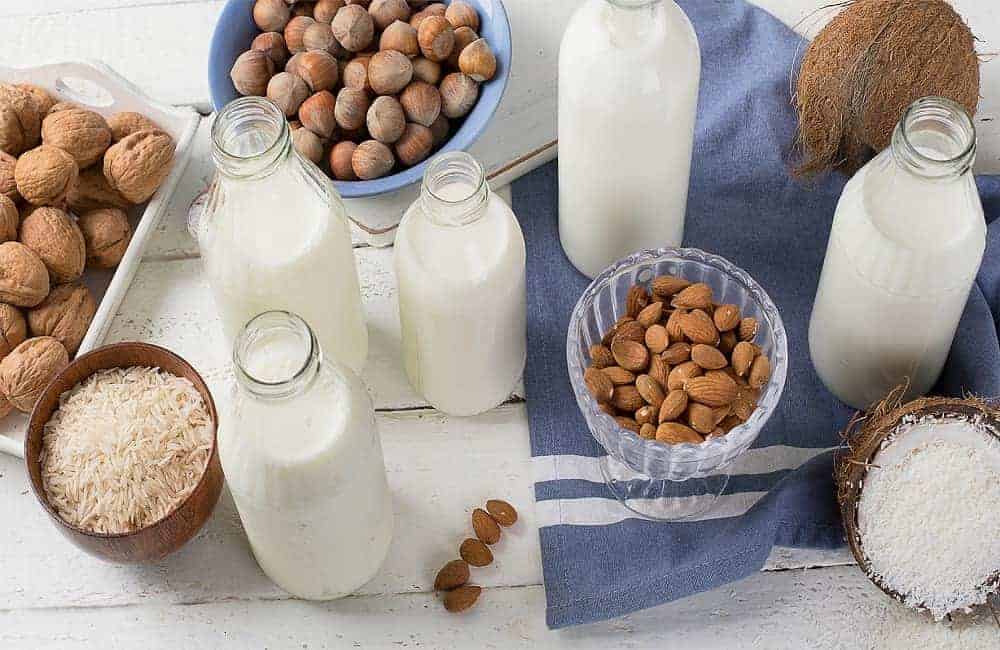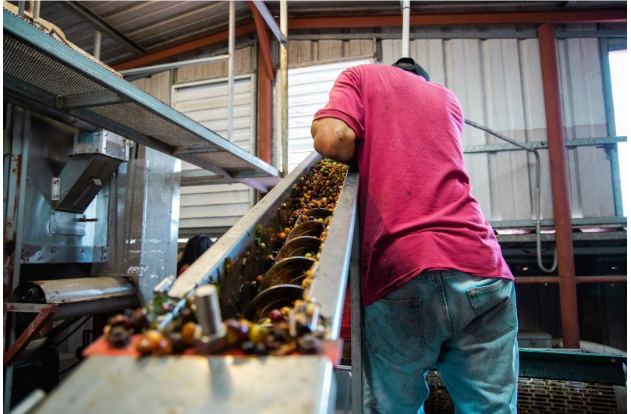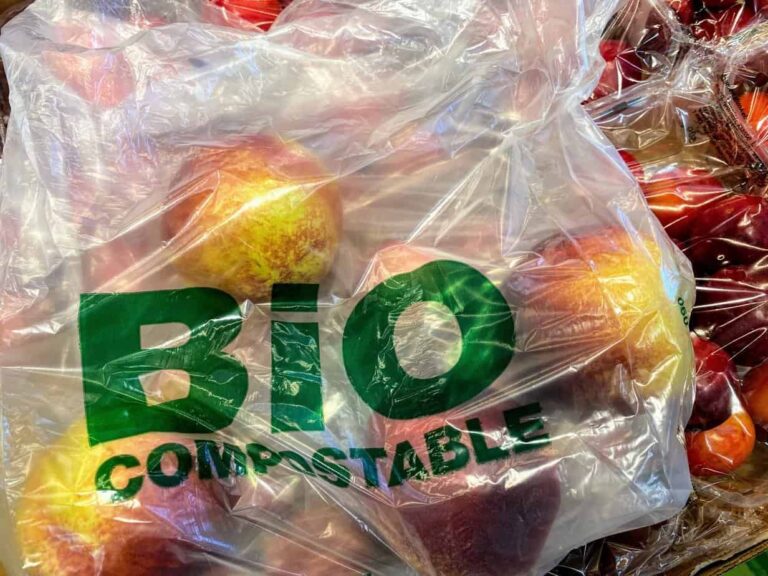Your cart is currently empty!
Plant Based Milk Options and The Environment
With the rise of health trends, non-dairy milk has become as common as millennials trying to make a living on YouTube. A few years ago, seeing soy milk in a family’s refrigerator would have caused an eyebrow or two to rise. Now you can find nearly a dozen plant-based milk options fully stocked at your local grocery store.
According to Healthline, several non-dairy kinds of milk rise above the rest in terms of healthiness. The top 3 recommended include soy, almond, and coconut milk.
Plant-Based Milk Options and The Environment
Along with an increase in human health consciousness, it’s undeniable that the environment’s health (or, maybe more rightly, a lack thereof) has been on the general public’s mind lately. Everything from how you get to work to the bag you store your snacks in and everything in between is being called into question. The goal is to minimize every drop of our impact on the environment.
An often-forgotten area of contribution to the disaster that is our ecosystem is the food we eat. The packaging used, the harvesting methods employed, the distance that must be traveled to get to the consumer … every step of the food production process takes its toll on the environment. Plant-based milk is no exception.
Soy Milk
Ah, the soybean. You’d be hard-pressed to drive five miles through any rural state without passing fields bursting with soybeans. Soy seems to be in everything from oil to protein bars. As an especially versatile crop, milk alternatives are no exception.
Soy is more or less the Beyoncé of the agricultural world, meaning it’s in high demand around the globe. Naturally, this means the effects of its growth and processing are amplified. Unfortunately for soymilk lovers, soy isn’t exactly a sustainability shining star. This is particularly true in South America, where soy production is exploding.
One of soy’s largest impacts on its ecosystem is its ability to erode the soil. Techniques like conservation tillage can help mitigate this. However, erosion is still happening at such a high rate that the farming process is destroying land faster than it can be restored.
Not only are soybeans eroding soil, but their farming is also taking a major toll on the purity and amount of available water where the crop is grown. Chemicals used to make the farming process easier can easily pollute nearby bodies of water. In addition, the amount of water required for soybeans’ survival can easily deplete naturally-occurring resources.
While certainly not the worst of options, the verdict on soymilk is also not the best.
Almond Milk
We’ve all heard of the life-altering droughts California has been experiencing in the past few years. Less commonly known is that most almonds used for almond milk production are grown in California.
It’s estimated that when the growing process is said and done, it takes over 15 gallons of water to produce just 16 almonds. Unfortunately, this means much desperately needed water is taken and used for almond farming. Thus leaving California residents high and quite literally dry.
Additionally, the rising popularity of almond-based products means farmland previously used for lower water-consumption crops like beans and melons is being converted to almonds. That’s not exactly good news for the residents of California.
Another environmentally-unfriendly pitfall of almonds is the pesticide residue they leave behind. The rest of the world is trying to save honeybees. These guys are a “need to have” instead of a “nice to have” in basic food production. However, almond farming uses a pesticide, a known toxin, on honeybees. Yikes.
Almond milk is a delicious dairy-free option. Unfortunately for the environmentally conscious, it isn’t one that can easily be enjoyed guilt-free. Many people try and make their own Almond Milk at home. Unfortunately, all American Almonds sold in bulk commercially are required by law to be pasteurized. This process makes it impossible to make almond milk. Therefore, customers are buying unpasteurized almonds from the number two producer, Spain, to make their homemade almond milk in America.
Coconut Milk
Finally, one of the good guys! Fortunately for everyone with taste buds and a conscience, coconut milk is more than feeling like you’re on a tropical island. It’s also relatively low-impact on this spinning globe we call home.
Part of the reason coconut milk is better for the environment than its other nut friends is its growing limitations. These limitations mean only growing in areas that already have an abundance of water available. What do you picture when you think of coconuts? It’s probably around a decent amount of water, right? This is great news for water consumption.
Coconut milk is a good choice due to its growth and production’s low level of emissions. Coconut trees are also not a large contributor to global deforestation.
One concern about using coconut-based products is the effect the popular crop has on those producing it. The world has gone cuckoo for coconuts, meaning farmers must work hard to keep up with the demand. This can often result in unintended consequences for farmers already close to living in poverty.
Every day these farmers focus on producing this single, crucial crop. Hardship is often one harsh bout of rain or soil disease away. One tactic to ensure you’re doing your part is to take the extra few minutes to look for fair trade products.
Hemp Milk
Though this plant-based milk option is made by blending water with seeds from the hemp plant, Cannabis sativa, you won’t get any of the mind-bending effects of its controversial cousin, marijuana.
A big hit with your tree-hugger friends, hemp gets approved for its eco-credibility with organizations like Sierra Club and does not require intensive farming procedures. On the contrary, it grows rapidly, naturally repels weeds, is not prone to diseases, and requires little watering. Hemp also fights global warming by filtering out carbon dioxide from the atmosphere, and who doesn’t like saving the planet with their morning cup of coffee?
Hemp milk has an earthy flavor and a creamy consistency, making it optimal for smoothies and a big bowl of cereal. Due to the ever-growing popularity of plant-based milk options, they can be found in many stores. Hemp milk is loaded with healthy fats and proteins. When you compare it to cow’s milk, it has fewer calories, less protein, and carbs but roughly the same amount of fat.
Watch out for added sugar when purchasing hemp milk in larger commercial spaces. Salt, thickeners, and other additives may also be added to commercial hemp milk.
Other Health Benefits of Hemp Seeds
Studies from recent years suggest that there may be several health benefits to the consumption of hemp seeds. They may reduce the risk of heart disease, as hemp seeds are a great source of both arginine and gamma-linolenic acid. These have been linked to possibly reducing the risk of heart disease.
In addition, consuming hemp seeds may also be great for your skin. Hemp contains the fatty acids omega-6 and omega-3 in an ideal ratio, which is between 2:1 and 3:1. This perfect balance can help guard your skin against immune responses due to inflammation and the effects of aging. As help milk is rich in omega-6 and omega-3, consumption could do much for the skin and health.
Hemp milk does not have any soy, gluten, or lactose and is amazing for a vegan diet and for those with dietary sensitivities. It is fantastic for lattes, cappuccinos, and other coffee drinks.
It’s incredibly easy to make your hemp milk. Combine ½ to 1 cup of hemp seeds with 3 to 4 cups of water in a blender. You may strain your hemp milk with a cheesecloth and add maple syrup, vanilla extract, sea salt, dates, or honey for any taste. Hemp milk stores for up to 5 days in your refrigerator.
Flax Milk
Flaxseed milk is one of the newer plant-based milk options to hit the shelves. If you are up for a boost of 1,200 milligrams of heart-healthy omega-3 fatty acids at 70 calories per cup, this dairy-free milk is for you!
A popular crop since the beginning of civilization, flax seeds provide sizable amounts of protein, fiber, and healthy fats. In addition, they are a good source of vitamins and minerals, including calcium, magnesium, and iron. Like hemp, flax is good for the environment because it does not require chemicals against weeds and pests. It’s a hearty plant that grows excellently year after year in temperate and moist climates.
Flax seeds contain lignans, which are plant compounds containing estrogen and antioxidant properties. Both can help reduce the risk of cancer and improve overall health. According to one Canadian study that involved 6,000 women, those who consume flax seeds are 18% less likely to develop breast cancer. Additionally, men can also fight cancer with flax seeds. In a study of 15 men, those who ingested 30 grams of flax seeds daily while adhering to a low-fat diet reduced their levels of a specific prostate cancer marker. This suggests that this could ultimately lower men’s risk of prostate cancer.
Flax, Fiber, and Flavor
Flax seeds are remarkably high in fiber and help promote extraordinary digestive health. They contain two types of dietary fiber– soluble (20-40%) and insoluble (60-80%). This healthy food darling also helps lower cholesterol. In a recent study of individuals with high cholesterol, those who consumed flaxseed daily for three months lowered their total cholesterol by 17% and LDL cholesterol by 20%.
Unsweetened flax milk is considered a great beverage for those with diabetes. Banana enhances and brings out the nutty flavor of the flax. For a delicious and satisfying beverage, blend some bananas with the flaxseed milk in a blender. Add some ice, and you get a delicious smoothie. There are many ways to enjoy this healthy and heart-friendly plant-based milk option full of amazing health benefits.
Pecan Milk
Also, a newer kid on the plant-based milk block, pecan milk has become an option for those looking beyond dairy-based milk. Stores like Whole Foods are now carrying varieties of the plant-based milk option, with reviews saying that pecan milk is sweet enough for a cold treat but not too overpowering.
On the sustainability scale, pecans are considered to leave a smaller footprint than other nuts. A University of Florida study found that groundwater pollution was dramatically reduced when they practiced agroforestry, growing crops and trees together on the same plot of land with both cotton and pecans in Florida’s panhandle.
Recent reports suggest that pecans may be excellent for heart health. According to a study in the journal Nutrients, consuming nuts daily will positively impact adults at risk for heart disease. This was tested using a sample of 26 men and women. Each participant was overweight but otherwise healthy. They each spent 4 weeks on one particular kind of diet. Then switched the next 4 remaining weeks to another kind of diet.
Results
The first diet was a control diet with low-fat options high in fruits and vegetables, while the second one was very similar, except that pecans replaced 15% of the total calories in the latter diet. Findings proved that the addition of pecans improved insulin sensitivity. Especially changes in serum insulin and the function of beta cells. These cells store and release insulin. Scientists state that further investigation is required to know more about these findings, but they always conclude that way. The evidence points to a balanced diet, with pecans consumed for good measure, which could be a gateway to good health.
There are many recipes online for making pecan milk, including one from the American Pecan Council. Pecan milk is easy to make if you have a blender, pecans, and a little time. To make variations of the milk, you may roast the pecans for different flavor profiles. Feel free to add different sweeteners, including stevia, honey, and dates. Pecan milk is great to bake with and makes a delicious treat for the entire family.
Environmental Impact of Cows’ Milk
The traditional option for calcium-soaked goodness also takes a serious toll on the environment. If anything, cow’s milk is possibly your worst choice for Mother Earth. High harmful emissions, high use of land, high water use … you could say traditional dairy is a perfect storm.
No matter which non-dairy milk you choose, you’re making an at-least-slightly-better choice for the environment. Every bucket drop counts as simple as swapping a bad choice for a slightly less-bad choice. Overall, these choices can add up to helping to make a difference.
Finally, if you’ve been a die-hard dairy fan your entire life, try plant-based milk, whether your reasonings are based on health in general, allergies to lactose, or other milk components. Plant-based milk is a great choice, even if your drive is protecting the environment, taste, or any other factor.




